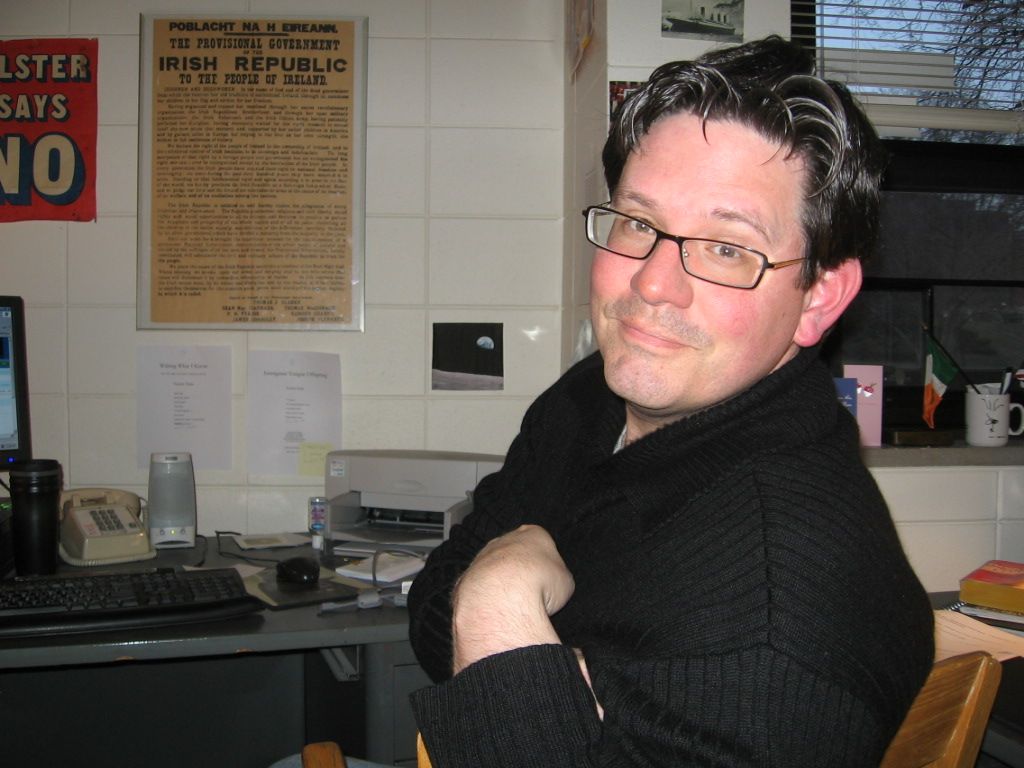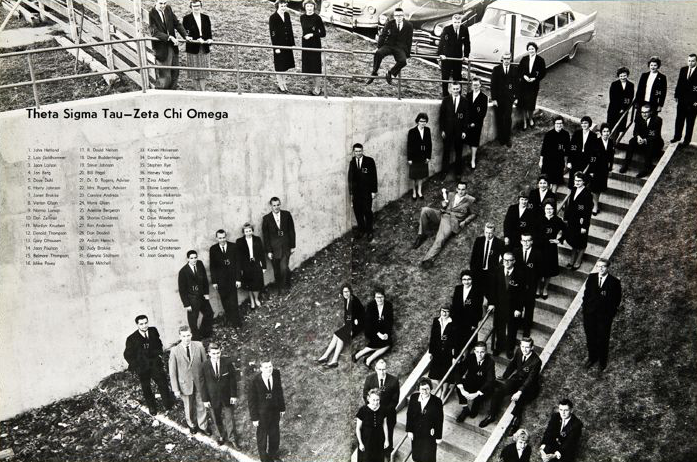English professor publishes new novel

Since he was a child, Augustana’s writer-in-residence has loved to read.
The way in which authors could capture his imagination through storytelling, despite never having met them, fascinated him. He wanted to present the same in his own writing.
Now in his 21st year at Augustana, English professor Patrick Hicks has accomplished that goal yet again with the publication of his latest novel, “Across the Lake.”
The novel focuses on gender and brutality among women during the Holocaust. It follows Svea Fischer, who is imprisoned in the Ravensbrück concentration camp, and Anna Hartmann, a guard who has just arrived at the camp.
“One of the things I hope is that when someone reads this book, they’ll feel like they are in Ravensbrück as well. In many of the chapters, the settings are real places that are still in Ravensbrück.”

Hicks has written a number of works pertaining to the Holocaust since being an undergraduate student at Saint John’s University, and he has studied the Holocaust professionally for about 15 years.
He published his debut novel, “The Commandant of Lubizec,” in 2014 and his second novel, “In the Shadow of Dora,” in 2020.
“As I was finishing my second novel, I began to really think about how very gendered our view of the Holocaust typically is. We think of male violence,” Hicks said.
Shortly after he released his second novel, Hicks came across Ravensbrück: the only all-female concentration camp in Nazi Germany.
“I began to ask myself questions. For example, did women act differently in the concentration camps, both the prisoners and the guards? Did they act differently from men?” Hicks said. “I wrote ‘Across the Lake’ because I wanted to investigate gender in the Holocaust.”
Hicks visited Ravensbrück for research on a trip to Germany.
“I went to the same places that my characters were at, and I just imagined my characters in front of me, and I would look around at what the buildings looked like,” Hicks said.
His trips to Germany, among countless hours of research, enabled him to ensure accuracy in the novel.
“Everything that happens in ‘Across The Lake’ did happen at Ravensbrück,” Hicks said. “I didn’t create anything that didn’t happen at that camp. I created characters and what happens to those characters is based on historical accuracy.”
Hicks’ immense dedication to history shines through his work. His exploration of gender dynamics during the Holocaust and his commitment to accuracy has helped to create powerful stories and characters.
“I am very intentional with how I write books,” Hicks said. “I want to have what I call ‘narrative energy.’ I want the pages to turn quickly and if I have done my job properly, readers will finish this novel within one or two sittings. I want to nail them to the chair so that they will want to know what is going to happen next. I do that so that they will also learn along the way.”
In all his novels, Hicks invites readers to step into the past and consider the details of history. Hicks’ work serves as a reminder of the power of literature.
“I am hoping that once readers finish this book, they will consider the role of gender,” he said. “I hope they will consider how some people embrace evil and also ask questions of what we remember from history.”



